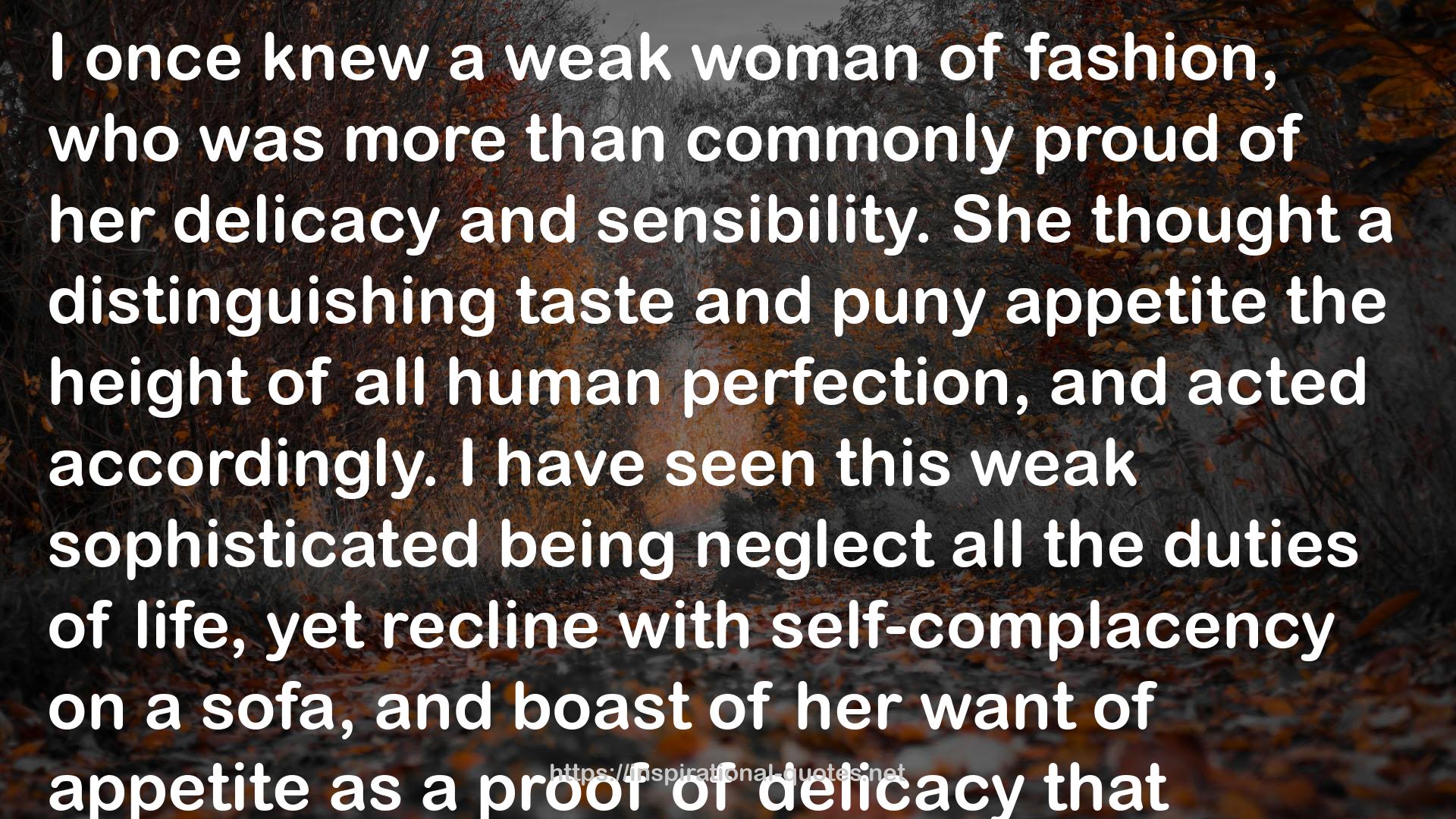" I once knew a weak woman of fashion, who was more than commonly proud of her delicacy and sensibility. She thought a distinguishing taste and puny appetite the height of all human perfection, and acted accordingly. I have seen this weak sophisticated being neglect all the duties of life, yet recline with self-complacency on a sofa, and boast of her want of appetite as a proof of delicacy that extended to, or, perhaps, arose from, her exquisite sensibility: for it is difficult to render intelligible such ridiculous jargon. Yet, at the moment, I have seen her insult a worthy old gentlewoman, whom unexpected misfortunes had made dependent on her ostentatious bounty, and who, in better days, had claims on her gratitude. Is it possible that a human creature should have become such a weak and depraved being, if, like the Sybarites, dissolved in luxury, every thing like virtue had not been worn away, or never impressed by precept, a poor substitute it is true, for cultivation of mind, though it serves as a fence against vice? "
― Mary Wollstonecraft , A Vindication of the Rights of Woman
